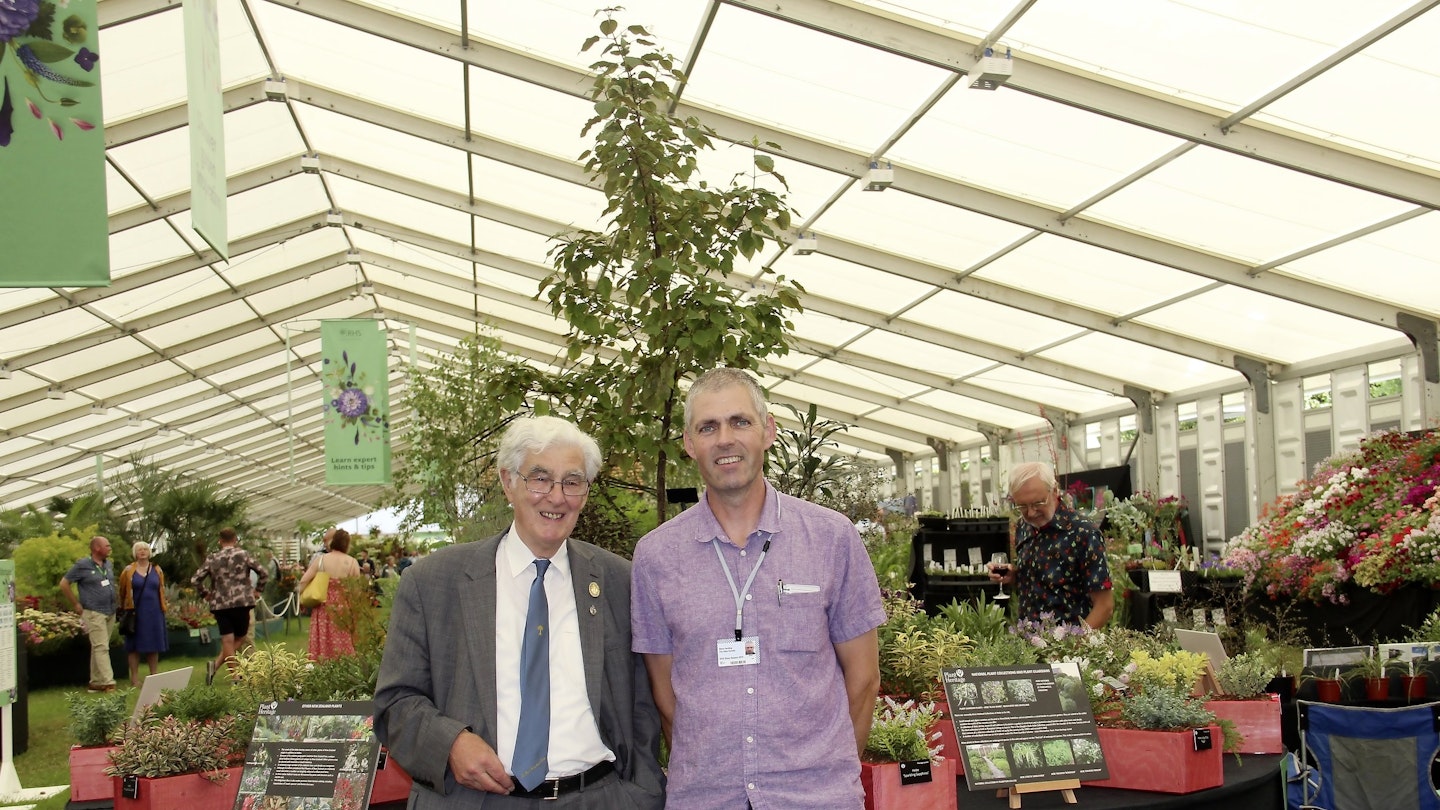Sprigs of hebe taken from a car park by his father triggered Steve Harding’s passion for these evergreen shrubs. As a teenager Steve, and his brother Derek, learned to garden from their father Dennis, a lab technician, who was passionate about fruit and vegetables. “After getting the hebe cuttings to root and develop into plants I was hooked,” said Steve.
“The fascination for hebes remains. If I could I’d love to grow every one of the 90 or so species!” Currently Steve is head gardener at a private 37-acre estate on the Kent coast, where he grows a wide range of plants for the owners, including a small National Plant Collection encompassing H. stricta and H. traversii. He grows them among other plantings rather than in isolation to illustrate how they can be used to good effect.

Hebe stricta ‘Lindleyana’ from Steve’s collection
His fledging interest was nurtured by joining the Hebe Society in 1986. “In 1995 I went to New Zealand to see hebes in the wild, which was a memorable experience,” said Steve. “On my return the society made me Shows and Events officer, and I became the Chairman six years ago.”
Steve became involved with Plant Heritage in 2005, when “It was a natural step to start my own National Collection.”
Steve is concerned the public may have the wrong impression about hebes, thinking them difficult to grow. “As a rule of thumb, the larger the leaf the less hardy they are. The variegated forms with larger leaves you see for sale look good great in patio pots, but are a little on the tender side,” said Steve.
“All hebes love well-drained soil and full sun. The garden here’s pure river gravel, and the hebes thrive on it. They don’t need feeding. I find flowering decreases if you do. A light clip after flowering also keeps them neat.”
Steve’s top five hebes for general use are ‘Nicola’s Blush’ with pink and white blooms and which makes an ideal hedge, especially in coastal areas; long-flowered purple-pink ‘Wiri Charm’, mound-forming grey-green H. topiaria which can be clipped, as can white-flowered H. rakaiensis and H. brachysiphon. “These varieties are hardy and always guaranteed to perform!”
How you can be a plant hero
You can help preserve unusual plants in your garden! The Plant Heritage charity works to conserve the nation’s garden plants through the National Plant Collection Scheme and Individual Plant Guardians, and is looking for Garden news readers to get involved with its crucial work.
Contact collections@plantheritage.org.uk for more information or visit www.plantheritage.org.uk.

